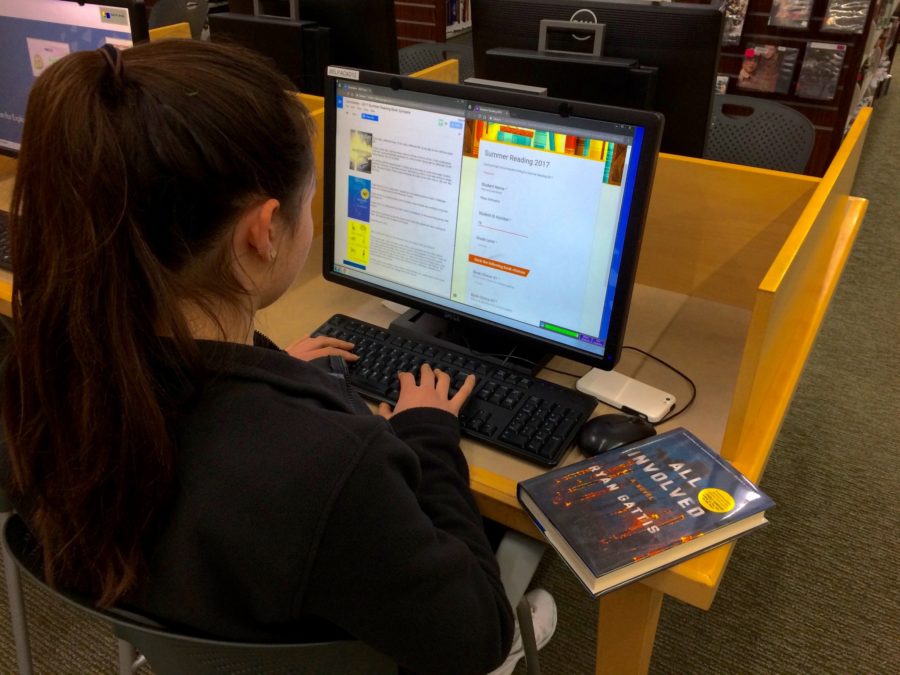A decision finally left up to the students: the summer reading book.
From Feb. 22 to Feb. 24, students had the opportunity to vote for the upcoming summer reading book through a Google Form.
The genres varied from fantasy to nonfiction, and students chose their top three book choices. Some teachers required their classes to vote, but others merely sent out the form and gave them the option.
“Since summer reading is a district requirement, giving students a voice in their leisure reading is important to the English department,” said English teacher Kelly Redmon, who helped organize the candidates for this year’s summer reading book. “Students are more likely to read and enjoy a selection when they’ve had the opportunity to vote on it.”
A large list of candidates for the summer reading was put together by students, the Belmont teen librarian, and English department members. A smaller group of students and staff selected seven books, which they thought the student body should vote on.
These books included “Every Day,” “Challenger Deep,” “The Female of the Species,” “All Involved,” “March,” “Burn Baby Burn,” and “Salt to the Sea.”
Students have various opinions on the importance of getting the chance to vote on a summer reading book, as well as what the ideal genre would be. There are also many ideas of how the voting process could be improved.
Kat Sulimov, a junior, took this opportunity to vote for the candidate “All Involved,” because she was interested in the 1992 Los Angeles Riots, and how they are relevant to the current racial climate in the United States.
“It is so important to have the chance to vote because students don’t usually get to choose their assigned reading,” said Sulimov. “Getting the chance to read something that they are actually interested in is a great opportunity and will make students enjoy their reading more. It’s also great that the options we had to choose from were so diverse and there was something for everybody.”
Although many students were excited that they got an opinion of what they would have to read over the summer, some didn’t have a specific preference.
Sophomore Tim Krassiev said, “I don’t care about what book is chosen because, in the end, I’ll be forced to read it whether I like it or not.”
The final book choice for the summer could also have the ability to change whether the assignment is seen as a fun pastime or as schoolwork.
“The summer reading book should be an easy-read because summer is our time off, and we get educational books during the school year,” said freshman Dagny Klieman.
English teachers around the campus have informed their classes of the opportunity to vote, yet many students still did not feel inclined to do so.
“I think if more people voted, it would decrease [a number of] complaints from students about which book is chosen,” said Krassiev.
There are ways that Carlmont could further encourage the students to take part in the voting process.
Klieman said, “More students would vote if the school would announce it to a further extent, and if teachers would explain what each book is about in English class.”
The more students participate in choosing a summer reading book, the more the book will represent the overall interest of the school.
“I voted because every vote counts and it would be bad if we got a boring book just because people didn’t feel like voting,” said Klieman.


